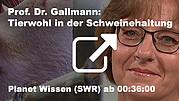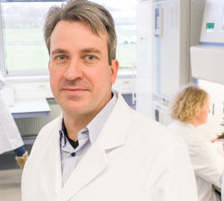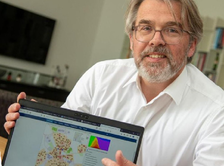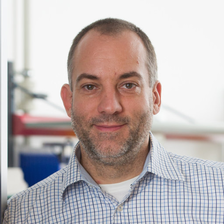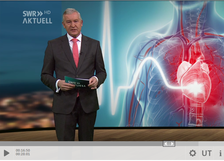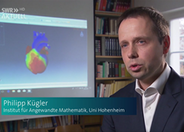Biostimulants, soil improvers, bioprotectants: promoters of bio-
intensification in plant production [02.02.2022]
The protection of our soils with their manifold functions (e.g. as habitat, ecosystem, filter and buffer for the transformation of substances, and as a basis for agricultural production) is an important task that is increasingly being focused on by national and European authorities as well as funding agencies. Ecosystem functions are closely related to landuse in general and...more
Impact of Harvest Time and Pruning Technique on Total CBD Concentration and Yield of Medicinal Cannabis [10.01.2022]
"Worldwide cannabis cultivation has increased due to the recent changes in legalization, regulation and marketization of Cannabis sativa L. for industrial, medicinal and recreational use (The Global Cannabis Report 2019). To date, 177 phytocannabinoids have been identified in cannabis plants [Adamek et al, 2021], among which the two most abundant are the psychoactive compound...more
The impact of pesticide use on human and environmental health in Europe and Argentina: Methodical Approach of the Euroepan SPRINT project [04.12.2021]
An international consortium led by Dutch soil expert Coen Ritsema (U Wageningen) and including Hohenheim scientist Ellen Kandeler has published their approach for assessing health risks associated with pesticide use. Protocols are presented for analyzing pesticide residues in crops, livestock, humans and other non-target organisms in agroecosystems. Resulting data will be used...more
Chlorinated paraffins (CPs): Analytical conundrums and the pressing need for reliable and relevant standards [30.10.2021]
Chlorinated paraffins (CPs) are complex mixtures of polychlorinated, saturaded hydrocarbons considered to be environmentally hazardous and health threatening because of their persistence and high bioaccumulation potential (accumulation in adipose tissue, kidney and liver). They are toxic to aquatic organism and have been proven carcinogen in mouse and rat experiments, hence...more
Factors Influencing the Caesarean Section Rates in German Hospitals in the Years 2015-2017 [18.10.2021]
A joint study by the University of Hohenheim and Furtwangen University of Applied Sciences concludes that the number of caesarean sections is influenced by the regional level of education rather than population density.more
'We would rather die from Covid-19 than from hunger’ - Exploring lockdown stringencies in five African countries [26.09.2021]
Many people in the poorest countries of the world are facing a hard and difficult decision: they risk dying of COVID-19 by going to work, or they risk dying of hunger by staying at home.more
Better knowledge for the prevention of food intolerances and effective intervention concepts [15.07.2021]
"It is frightening that about a third of the European population complains now about food intolerances, although it is often unclear what are the reasons behind," explains Prof. Stephan Bischoff from the Institute of Nutritional Medicine at the University of Hohenheim. Together with three other Hohenheim scientists and colleagues from Lübeck and Borstel, this problem is going...more









